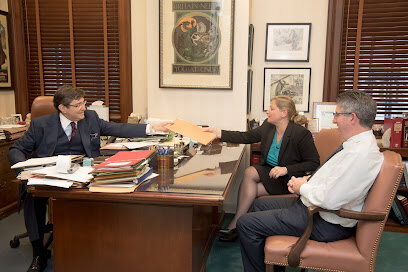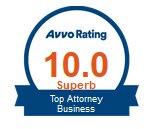Best Car Accident Lawyers in Minnesota
Share your needs with us, get contacted by law firms.
Free. Takes 2 min.
Or refine your search by selecting a city:
List of the best lawyers in Minnesota, United States
About Car Accident Law in Minnesota, United States
Car accident law in Minnesota governs the legal responsibilities and rights following a motor vehicle accident. These laws help determine who is liable for damages, how victims can seek compensation, and what steps must be taken after a collision. Minnesota follows a no-fault insurance system, which affects how claims are handled and who pays for injuries and property damage. Understanding your rights and obligations after an accident is crucial to protect your interests and ensure you are properly compensated for your losses.
Why You May Need a Lawyer
There are several situations where seeking legal assistance after a car accident in Minnesota may be beneficial. If you have suffered serious injuries, face large medical bills, or have lost wages due to the accident, a lawyer can help you recover appropriate compensation. Legal advice can be especially important if the insurance company denies your claim or offers a low settlement, or when multiple parties are involved and fault is disputed. If you are accused of causing the accident or are navigating the claims process for a loved one, such as in a wrongful death case, an attorney can guide you through complex procedures and advocate on your behalf.
Local Laws Overview
Minnesota's car accident laws include several key features:
- No-Fault Insurance: Minnesota requires all drivers to carry Personal Injury Protection (PIP) as part of their auto insurance. This coverage pays for medical expenses and lost wages regardless of who caused the accident.
- Comparative Fault: If your case goes beyond no-fault and into a liability claim, Minnesota follows a modified comparative fault system. You can recover damages if you are less than 50 percent at fault, but your compensation will be reduced by your percentage of fault.
- Statute of Limitations: The time limit to file a personal injury lawsuit from a car accident in Minnesota is generally six years from the date of the crash. Property damage claims have a six-year deadline as well. Different rules may apply when minors or government vehicles are involved.
- Reporting Requirements: If a car accident results in injury, death, or property damage of 1,000 dollars or more, you must report it to law enforcement immediately.
- Uninsured and Underinsured Motorist Coverage: Minnesota law requires drivers to carry both uninsured and underinsured motorist coverage to help protect if the at-fault driver lacks adequate insurance.
Frequently Asked Questions
What should I do immediately after a car accident in Minnesota?
Check for injuries and call 911 if anyone is hurt. Move vehicles out of traffic if possible, exchange information with the other drivers, take photographs, and report the accident to police if required. Notify your insurance company as soon as possible.
How does Minnesota's no-fault insurance work?
Your own insurance (PIP) pays for your medical expenses and lost earnings up to your policy limits regardless of who caused the accident. In most cases, you file your claim with your own insurer first.
When can I sue the other driver after a car accident?
You can pursue a liability claim or lawsuit if your medical expenses exceed 4,000 dollars, you suffer a permanent injury, disability, or disfigurement, or if there has been a death. Otherwise, no-fault rules may limit your ability to sue.
What happens if I am partially at fault for the accident?
Under Minnesota’s comparative fault rules, you can still recover damages if you are less than 50 percent responsible. Your award will be reduced by your share of the fault.
How long do I have to file a claim or lawsuit?
The general statute of limitations is six years for personal injury and property damage claims from the date of the accident. Quick action is still advisable to preserve evidence and witness recollections.
Will my insurance rates go up if I file a claim?
Filing a claim may result in higher insurance premiums, especially if you are found at fault. However, each insurance company has its own policies regarding rate increases.
Do I have to report all accidents to the police?
In Minnesota, you must report an accident to law enforcement when there has been injury, death, or property damage of 1,000 dollars or more. Reporting is important for both legal and insurance purposes.
What kind of compensation can I receive after a car accident?
You may be eligible for medical expenses, lost income, replacement services, property damage, pain and suffering, and other losses depending on the severity and circumstances of the accident.
What if the at-fault driver does not have insurance?
Your own uninsured and underinsured motorist coverage can help cover your losses if the at-fault driver lacks adequate insurance.
Do I need a lawyer for a minor car accident?
For minor accidents with no or minimal injuries, you may be able to resolve the matter through insurance. However, legal advice can be helpful if injuries appear later, fault is disputed, or the insurance process becomes complicated.
Additional Resources
- Minnesota Department of Public Safety - Driver and Vehicle Services: Provides information on accident reporting and insurance requirements.
- Minnesota Judicial Branch - Self Help Center: Offers guides and resources about small claims and personal injury cases.
- Office of the Minnesota Attorney General: Answers consumer questions about insurance and accident rights.
- Minnesota State Bar Association: Helps locate lawyers experienced in car accident cases.
- Local law enforcement agencies: Can explain accident reporting obligations.
Next Steps
If you have recently been in a car accident in Minnesota, take the following steps to protect your interests:
- Document everything related to the accident, including photographs, witness contact details, and all communications with insurance companies.
- Report the accident to law enforcement and your insurance company as required by law.
- Monitor your health and seek medical treatment as needed, even if you do not initially feel injured.
- If you are facing significant injuries, disputed fault, or challenges with insurance claims, consider consulting an experienced car accident attorney.
- Use available resources such as the state bar association, government agencies, or legal aid organizations to locate reputable legal help.
An attorney can help you understand your rights, calculate the full extent of your damages, negotiate with insurance companies, and, if necessary, represent you in court. Acting quickly and with proper legal counsel can make a significant difference in your recovery and peace of mind.
Lawzana helps you find the best lawyers and law firms in Minnesota through a curated and pre-screened list of qualified legal professionals. Our platform offers rankings and detailed profiles of attorneys and law firms, allowing you to compare based on practice areas, including Car Accident, experience, and client feedback.
Each profile includes a description of the firm's areas of practice, client reviews, team members and partners, year of establishment, spoken languages, office locations, contact information, social media presence, and any published articles or resources. Most firms on our platform speak English and are experienced in both local and international legal matters.
Get a quote from top-rated law firms in Minnesota, United States — quickly, securely, and without unnecessary hassle.
Disclaimer:
The information provided on this page is for general informational purposes only and does not constitute legal advice. While we strive to ensure the accuracy and relevance of the content, legal information may change over time, and interpretations of the law can vary. You should always consult with a qualified legal professional for advice specific to your situation.
We disclaim all liability for actions taken or not taken based on the content of this page. If you believe any information is incorrect or outdated, please contact us, and we will review and update it where appropriate.
Browse car accident law firms by city in Minnesota
Refine your search by selecting a city.









